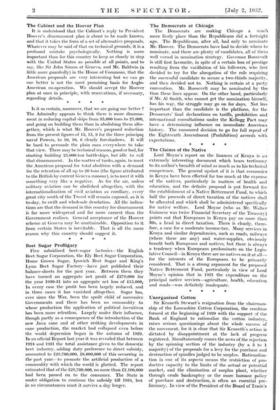The Claims of the Native Laid MOyne's report on the
finances of Kenya is an extremely interesting document' which bears testimony to its author's breadth Of mind as.muchas to his technical competence. The general upshot of it is that economies in Kenya have been effected far too much at the expense of the natives, particularly in matters of health and education, and the definite proposal is put forward for the establishment of a Native Betterment Fund, to which half the proceeds of direct taxation of the natives shall be allocated and which shall be administered specifically for native welfare. Lord Moyne (who as Mr. Walter Guinness was twice Financial Secretary of the Treasury) points out that Europeans in Kenya pay no more than 80s. a head in direct taxation. There is clearly, there- fore, a case for a moderate income-tax. Many services in Kenya and similar dependencies, such as roads, railways (where there are any) and water-supplies, obviously benefit both Europeans and natives, but there is always a tendency when Europeans predominate on the Legis- lative Council—in Kenya there are no natives on it at all— for the interests of the Europeans to be primarily considered. That is a strong argument for the proposed Native Betterment Fund, particularly in view of Lord Moyne's opinion that in 1921 the expenditure on the principal native services—agriculture, health, education and roads—was definitely inadequate.






































 Previous page
Previous page